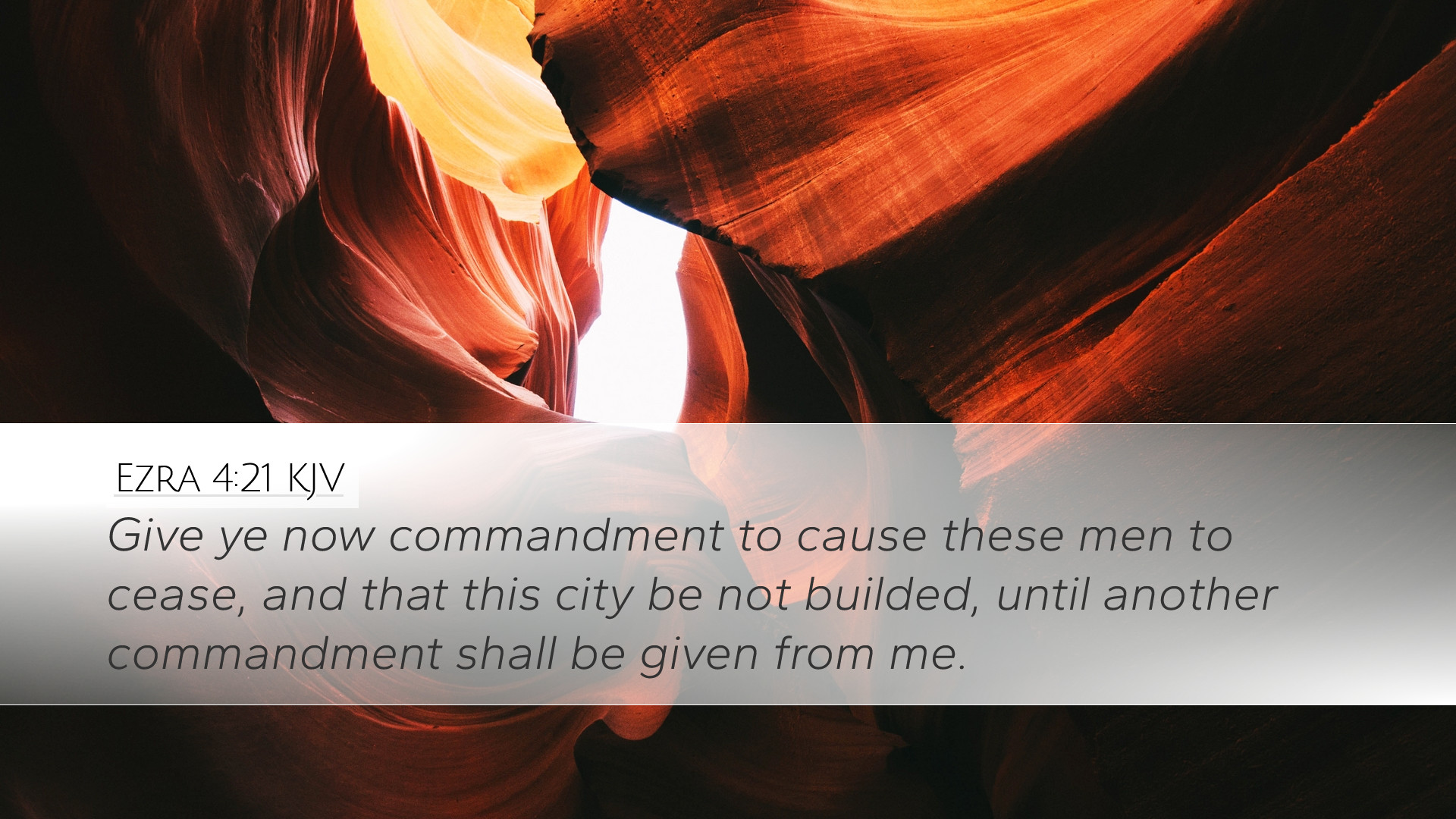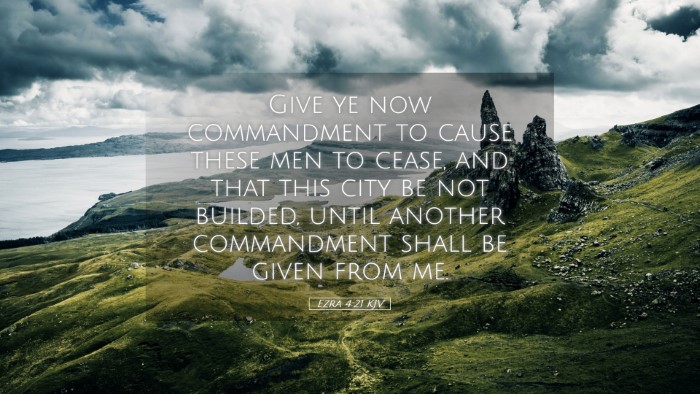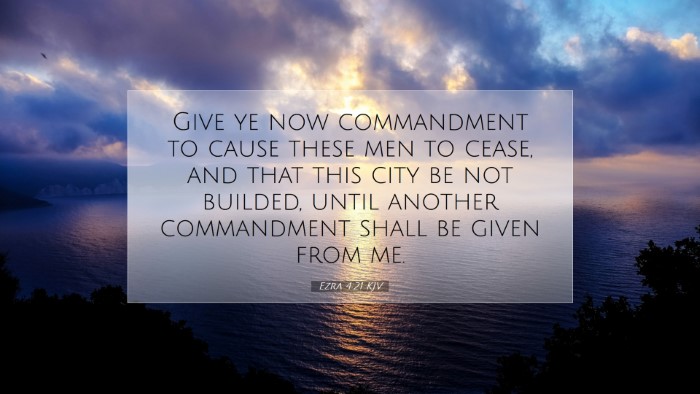Old Testament
Genesis Exodus Leviticus Numbers Deuteronomy Joshua Judges Ruth 1 Samuel 2 Samuel 1 Kings 2 Kings 1 Chronicles 2 Chronicles Ezra Nehemiah Esther Job Psalms Proverbs Ecclesiastes Song of Solomon Isaiah Jeremiah Lamentations Ezekiel Daniel Hosea Joel Amos Obadiah Jonah Micah Nahum Habakkuk Zephaniah Haggai Zechariah MalachiEzra 4:21
Ezra 4:21 KJV
Give ye now commandment to cause these men to cease, and that this city be not builded, until another commandment shall be given from me.
Ezra 4:21 Bible Commentary
Commentary on Ezra 4:21
Verse Context: Ezra 4:21 states, "Give ye now commandment to cause these men to cease, and that this city be not builded, until another commandment shall be given from me." This verse occurs in the narrative of the rebuilding of the temple in Jerusalem after the Babylonian exile.
Overview
The request to cease the rebuilding of Jerusalem serves as a crucial moment in the historical narrative of the returning exiles. It reflects both the external opposition to God’s people and the significance of divine providence in their mission. This passage is a poignant reminder of the challenges faced by those who endeavor to do God’s work amidst opposition.
Theological Reflections
The command to cease construction emphasizes the theme of political and social opposition that frequently confronts the faithful. This is evidenced in several public domain commentaries:
-
Matthew Henry:
Henry remarks on the political maneuvers that often affect God's purpose. He suggests that the slowdown in the temple's reconstruction was divinely acknowledged as part of God's overall plan for His people. The opposition faced, Henry notes, reflects a broader theological principle that often during times of spiritual revival, there comes great resistance.
-
Albert Barnes:
Barnes elaborates on the implications of governmental decrees on religious practice: he suggests that earthly authorities often see the rebuilding of God's works as a threat to their own power. He highlights the historical context, noting that the decree to stop construction was politically motivated, which serves to remind believers that they may face similar challenges in contemporary society.
-
Adam Clarke:
Clarke focuses on the spiritual significance of this interruption: he argues that such setbacks are not merely obstacles but also serve as moments of reflection and rededication to God's command. He encourages believers to recognize that God often uses times of hardship for deeper spiritual growth and reliance on His providence.
Historical and Cultural Context
The historical backdrop of Ezra serves as a crucial context for understanding this verse. The rebuilding of the temple occurred during a time when the Jewish people were resettling in a politically precarious landscape. The opposition from local authorities and their efforts to undermine the construction effort symbolize broader spiritual and existential struggles that the community faced upon their return.
Pastoral Applications
This verse offers rich implications for pastoral work today:
-
Encouragement during Opposition:
For pastors, Ezra 4:21 serves as a reminder to encourage congregations facing opposition in their ministry efforts. Just as the early exiles faced resistance, modern believers might contend with societal and institutional barriers that seek to hinder the work of the church.
-
Faithfulness in Prayer:
Leaders can emphasize the importance of prayer and reliance on divine guidance, mirroring the reliance of the exiles on God amidst external pressures. It is a teaching moment about the significance of maintaining faith during periods of delay or opposition.
-
Hope in Divine Providence:
This verse can promote the idea of spiritual perseverance, reassuring congregants that delays or setbacks in their spiritual journeys may ultimately serve God's greater plan. Pastoral care should include affirmations of hope and faithfulness amidst trials.
Conclusion
Ezra 4:21 is more than a historical account; it serves as a theological reflection on the nature of opposition, the importance of obedience, and the pivotal role of prayer and community in advancing God's purposes on Earth. By synthesizing insights from Matthew Henry, Albert Barnes, and Adam Clarke, we gain a multifaceted perspective on this succinct yet profound verse. It serves as both a challenge and encouragement for today's believers, reminding them that while opposition may arise, their mission in Christ is upheld by His sovereign will.


